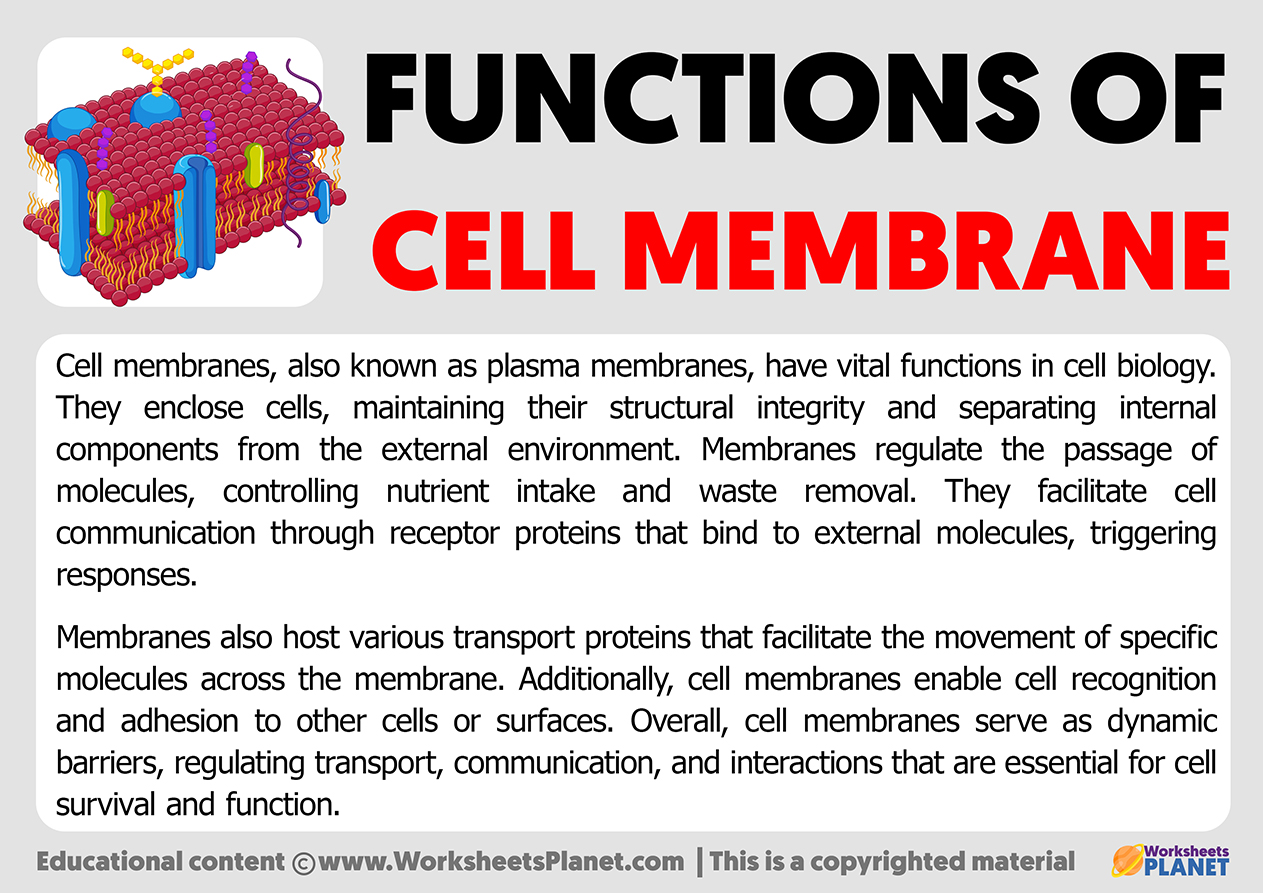Cell membranes, also known as plasma membranes, have vital functions in cell biology. They enclose cells, maintaining their structural integrity and separating internal components from the external environment.

Membranes regulate the passage of molecules, controlling nutrient intake and waste removal. They facilitate cell communication through receptor proteins that bind to external molecules, triggering responses.
Membranes also host various transport proteins that facilitate the movement of specific molecules across the membrane. Additionally, cell membranes enable cell recognition and adhesion to other cells or surfaces. Overall, cell membranes serve as dynamic barriers, regulating transport, communication, and interactions that are essential for cell survival and function.

